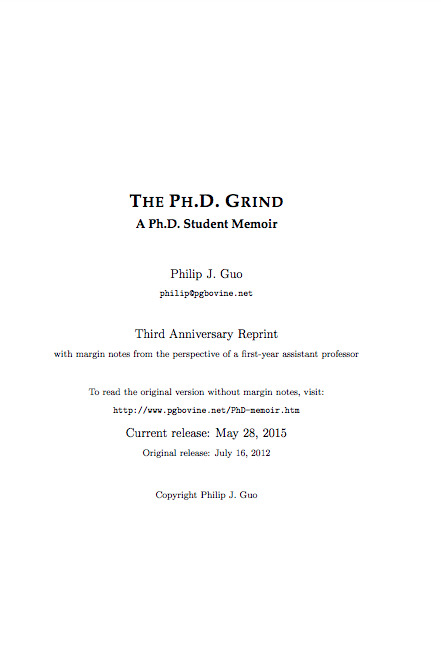What do you think?
Rate this book


115 pages, ebook
First published July 16, 2012
Question: Is your book meant as a critique of academia or a call for reform?
Absolutely not. I don't have any agenda besides telling my own story as honestly as possible.
most Ph.D. students are directly training for a job that they will never get. (Imagine how disconcerting it would be if medical or law school graduates couldn’t get jobs as doctors or lawyers, respectively.)
research was my only job, and I wouldn’t be able to earn a degree unless I succeeded at it. My mood was inextricably tied to how well I was progressing every day, and during those months, progress was painfully slow.
In the end, it took three attempts by four Ph.D. students over the course of five years before Dawson’s initial Klee-UC idea turned into a published paper. Of those four students, only one “survived”—I quit the Klee project, and two others quit the Ph.D. program altogether.
my six years of Ph.D. training have made me wiser, savvier, grittier, and more steely, focused, creative, eloquent, perceptive, and professionally effective than I was as a fresh college graduate. (Two obvious caveats: Not every Ph.D. student received these benefits—many grew jaded and burned-out from their struggles. Also, lots of people cultivate these positive traits without going through a Ph.D. program.)...
Pursuing a Ph.D. has been one of the most fulfilling experiences of my life, and I feel extremely lucky to have been given the opportunity to be creative during this time.